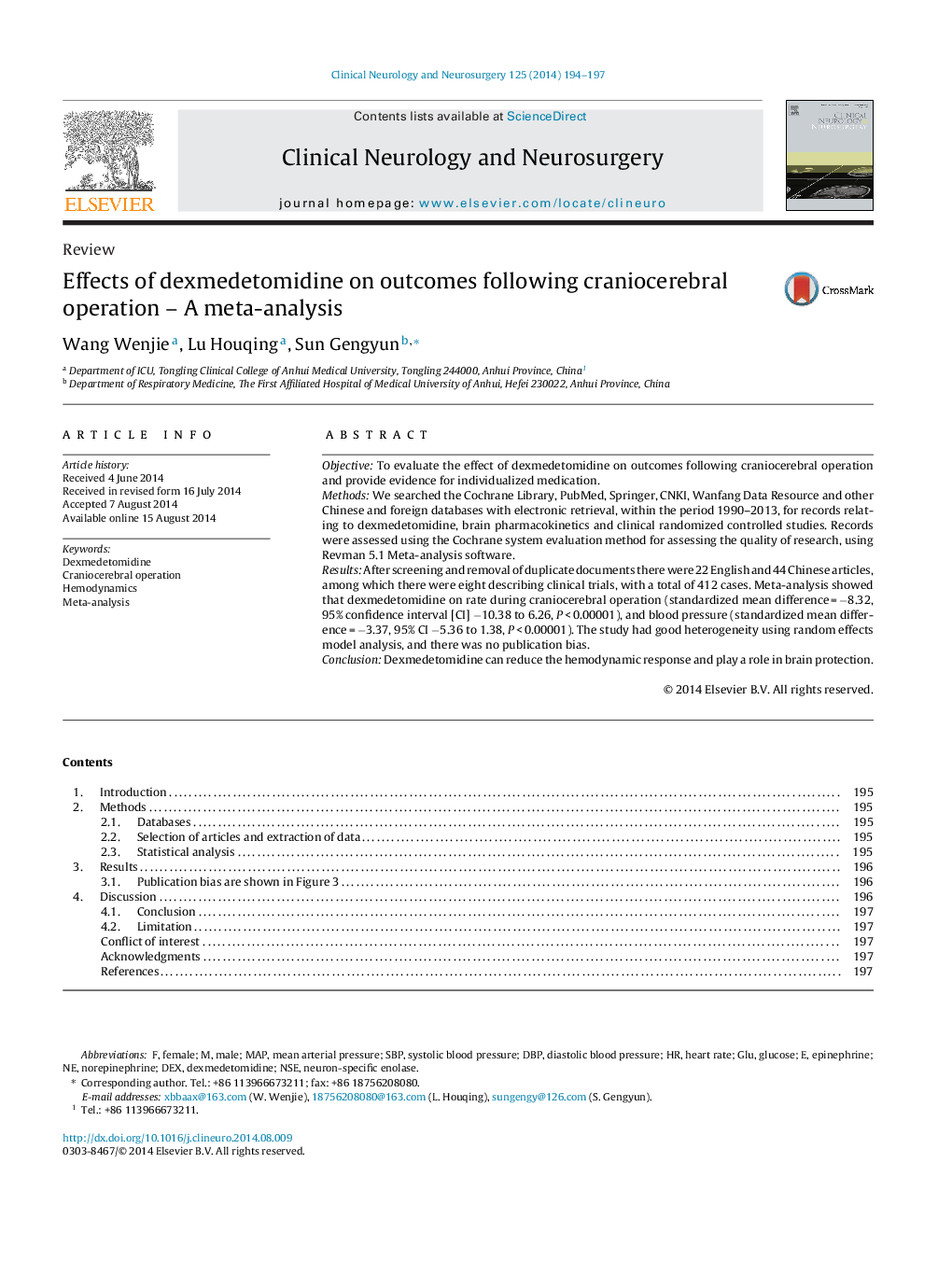| Article ID | Journal | Published Year | Pages | File Type |
|---|---|---|---|---|
| 3040202 | Clinical Neurology and Neurosurgery | 2014 | 4 Pages |
•Dexmedetomidine (DEX) goes through the negative feedback regulation of hemodynamic stability on craniocerebral operation.•DEX can reduce the hemodynamic response and play a role of brain protection.•Application of DEX in craniocerebral operation patients is safe and beneficial.
ObjectiveTo evaluate the effect of dexmedetomidine on outcomes following craniocerebral operation and provide evidence for individualized medication.MethodsWe searched the Cochrane Library, PubMed, Springer, CNKI, Wanfang Data Resource and other Chinese and foreign databases with electronic retrieval, within the period 1990–2013, for records relating to dexmedetomidine, brain pharmacokinetics and clinical randomized controlled studies. Records were assessed using the Cochrane system evaluation method for assessing the quality of research, using Revman 5.1 Meta-analysis software.ResultsAfter screening and removal of duplicate documents there were 22 English and 44 Chinese articles, among which there were eight describing clinical trials, with a total of 412 cases. Meta-analysis showed that dexmedetomidine on rate during craniocerebral operation (standardized mean difference = −8.32, 95% confidence interval [CI] −10.38 to 6.26, P < 0.00001), and blood pressure (standardized mean difference = −3.37, 95% CI −5.36 to 1.38, P < 0.00001). The study had good heterogeneity using random effects model analysis, and there was no publication bias.ConclusionDexmedetomidine can reduce the hemodynamic response and play a role in brain protection.
